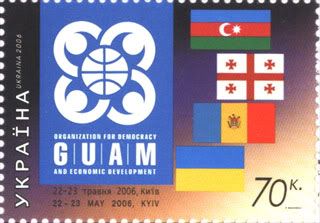 |
| [image source] |
My colleague Karim Sadjadpour recently published a satirical analysis of Middle East politics, "The Cynical Dairy Farmer's Guide to the New Middle East," riffing on a famous Cold War joke about communism and capitalism, known as "the parable of the isms." As Karim noted,
No one really knows how the two-cow joke known as "Parable of the Isms" came about, but most students of Political Science 101 have likely come across some variation of the following definitions:
Socialism: You have two cows. The government takes one of them and gives it to your neighbor.
Communism: You have two cows. The government takes them both and provides you with milk.
Nazism: You have two cows. The government shoots you and takes the cows.
Capitalism: You have two cows. You sell one and buy a bull.
Satire it may be, but the essential truth of the "cow jokes" is what makes them funny. Karim's thirteen terse metaphors for Middle Eastern regimes cut to the heart of a complex region in which increasing American interest has followed increasing investments of blood and treasure, with very little added understanding of what's really going on.
The Soviet Union suffered no dearth of American attention over nearly half a century after World War II. Yet even the keenest observers, like Kennan and Kissinger, were focused almost entirely on Moscow, and within it mostly on the Kremlin. During the Cold War, that made good sense - after all, no one in Kiev or Almaty, let alone in Chisinau or Ashgabat, was making particularly important decisions for US foreign policy and global security.
But twenty years after the collapse of Communism and the dissolution of the Soviet Union, things work a bit differently in Eurasia. To understand why drugs flow so readily from Afghanistan through Central Asia and into Russia and Western Europe requires some sense of what's going on - and what's not - in places like Dushanbe and Astana. To see why a NATO-Russia impasse over missile defense is so serious requires an understanding of how the people, and the governments, in Kyiv and Tbilisi relate to their massive neighbor.
The former Soviet republics are no longer defined so much by being formerly Soviet, as by what they have become after twenty years of independence. Yet the old categories - socialist, communist, capitalist, fascist - don't easily work to describe a region where political cultures draw on everything from Rome and Byzantium to Baghdad and Beijing. Let's see how the "parable of the isms" might offer a convenient shorthand guide to the fifteen states that once made up the USSR.
Russia
You have six cows and four bulls. Two of the bulls die from alcoholism, and the remaining two form a "tandem" to take the cows' milk and sell it to Germany and China.
Ukraine
You have four of the most productive cows on the farm, two of which allow themselves to be milked by Russia, which upsets the other two so much their milk goes sour.
Georgia
You have two cows and one prize-winning bull. The bull is so distracted winning prizes that Russia runs away with both cows.
Belarus
You have one cow which you savagely beat until it produces milk. The milk dries up after your last savage beating, so now you must sell the cow to Russia.
Moldova
You have two cows and a calf, but the cows live in Italy and Russia and send milk home by Western Union. You ferment the milk into wine, and launch a frenzied campaign to join the EU. Meanwhile, the calf is stolen and sold by rustlers.
Armenia
You have four cows, but three of them live in Los Angeles and think they are horses. They send money for you to build stables.
Azerbaijan
You have one cow that produces lots of excellent milk. You sell the milk to Farmer Browne and buy cattle prods from Israel and Turkey.
Turkmenistan
You had one cow but you sold it to buy a golden statue of a cow that rotates with the sun.
Kazakhstan
You have two cows that produce vast quantities of milk. You sell the milk, buy each cow a gold-plated cow bell, and declare yourself bull for life.
Kyrgyzstan
You have two cows: one Kyrgyz and one Uzbek; they hate each other and refuse to be milked. Instead of hay, feed them tulips. Then sell one each to Russia and the United States. After six months sell them again.
Tajikistan
You have three cows: one Tajik, one Uzbek, and one Russian. You beat the Russian cow until it runs away, and use your misfortune to plead for international aid. Meanwhile Iran milks your remaining cows.
Uzbekistan
You have four cows. You let them drink all the water in the neighborhood swimming pool. Now no one can go swimming. You blame this on "corrupt and lawless elements," and volunteer to remain in power until the problem is solved.
The Baltic States
You have lost half your cows, for which you blame Russia and demand an apology. As consolation, the EU gives you a sleek Scandinavian-designed barn and NATO farmers teach you advanced milking techniques.
 |
| [image source] |











